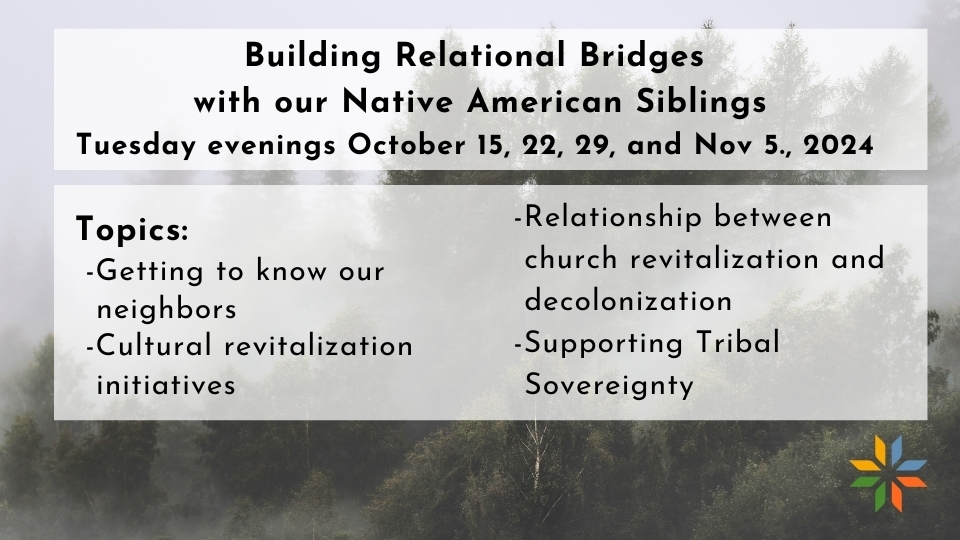
MMIR Webinar adds depth and focus on injustice
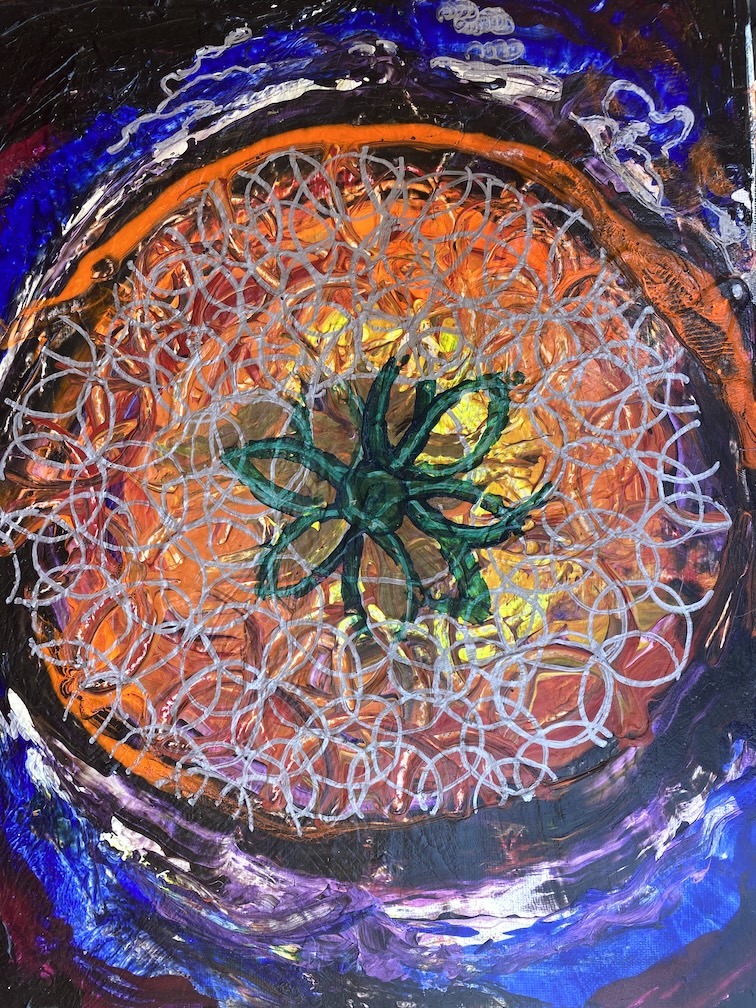
Painting created to represent Missing and Murdered Indigenous Relatives. Used by permission of the artist, Amanda Wolberg, formerly of Spearfish, SD.
“As followers of Christ, we are called to be a voice for the voiceless, to stand with those who suffer, and to seek justice and peace for all God's children," said Bishop Lanette Plambeck, resident bishop of the Dakotas-Minnesota episcopal area.
"The stories and lives of Indigenous sisters and brothers and children who are missing or who have been taken from us are cries that must not go unheard. Their lives matter, their stories matter, and their families deserve our unwavering support and alliance.”
Bishop Lanette spoke these words as she opened a recent online listening and learning session calledMissing and Murdered Indigenous Relatives (MMIR), hosted by the Dakotas United Women in Faith (UWF, formerly UMW). Colleen McKirdy, president of the Dakotas UWF, led the webinar, participants attended across our Dakotas-Minnesota Area and beyond.
The crisis of MMIR (also referred to as MMIW for Missing and Murdered Indigenous Women) and its victims —our neighbors, our siblings— is right on our doorstep. Some form of violence affects 84% of the women in two cultures among us—Native American and Alaska Natives. Other pandemics pale in comparison to the breadth and gravity of this elusive crime—the taking and the murdering of our Indigenous relatives right here in the Dakotas.
It can be easy to feel helpless or simply want to look away. But for Indigenous women and relatives, there is no easy out. They are far too often threatened with sexual violence, abduction, and murder. They cannot simply walk away. They need the open minds, open hearts, and open doors of United Methodists everywhere. They need God’s love every day.
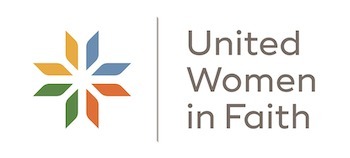
This webinar is one way the Dakotas Conference is seeking to bring light to this important matter and equip and inspire Dakotas United Methodists to be a part of the solution.
Dakotas UM pastor, Rev. Dr. Susan Jennys, an anthropology professor-turned-pastor, shared an introductory time in the webinar and liturgy as a three-fold theological task:
1. Acknowledgment of the Indigenous land on which we live today,
2. Confession for the sins of the past (from the UMC Service of Word and Table), and
3. Listening, reminding us that every shared story is sacred.
Rev. Jennys then closed with the Lord's Prayer from the First Nations Version, a fitting tribute to the work at hand.
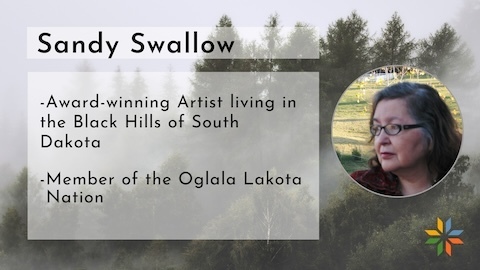
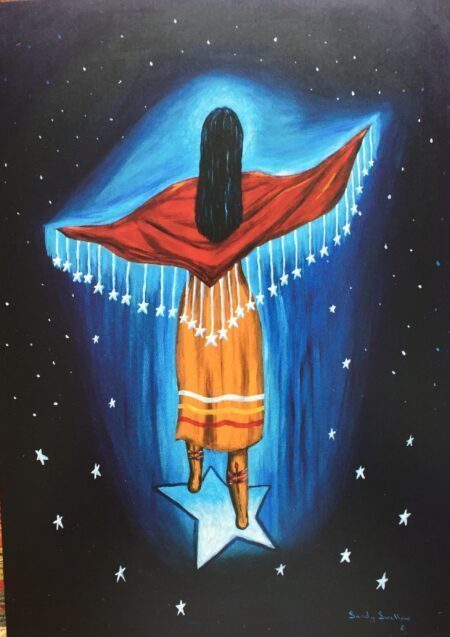
"Sister Star", by Sandy Swallow, for her sister, Donna, murdered in 1968.
Sandy's Sister, Donna Swallow
Sandy Swallow, an Oglala Lakota artist living in Spearfish, South Dakota, joined the webinar via phone. In 1968, Sandy’s older sister, Donna, was murdered just before her 22nd birthday, shot with a high-powered rifle by her increasingly violent, estranged husband. The trauma of that event and loss has deeply affected Donna's entire life. She recounted how she learned of her sister’s murder, how her mother narrowly escaped, and how the killing affected her whole family forever.
Sandy also presented a song she had written to honor her sister and closed with a word of hope.
“Anybody who's gone through what I have, I hope it will give them some peace in their heart that, that you can get through it with the Lord's help. I just thank the Lord that he got me through this and is continuing to work in our lives," she described.
Lily Mendoza's work for MMIR
Colleen then introduced Lily Mendoza, from the Cheyenne River Sioux Tribe, who began by explaining some MMIR/MMIW origins. Mendoza lost a son in 2012 and started her journey to understand the loss, researching MMIW and how to navigate the grief. Her journey led her to some revelations that the issue of MMIR is much larger than most people imagine.
To address the need, she founded the Red Skirt Society, a volunteer organization that assists Indigenous victims and seeks to prevent harm. The society also seeks justice for victims through advocacy and by maintaining a presence in the legal system, especially in Rapid City, South Dakota.
The rate of Missing and Murdered Indigenous Women is two-and-a-half times that of their representative population. As Mendoza explained, there is a long, generational history of Native women being abducted, even by French fur traders in previous centuries.
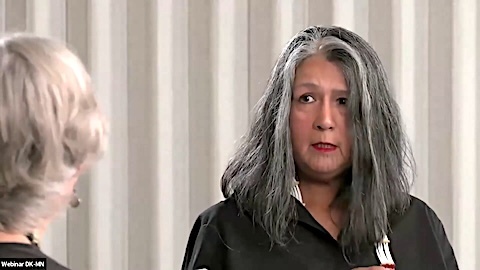
Lily Mendoza of The Red Ribbon Skirt Society speaks with Colleen McKirdy in the MMIR Webinar.
“So we created the society, and I just began to contact families just making cold calls or messages to individuals, within the state and beyond, just to see how those families were doing and how they were coping.”
As the work of the Red Ribbon Skirt Society grew, people began to see them, to know about them, and to reach out. Mendoza recalls one woman who called her after her daughter was murdered.
“I got a call from a woman, a mother, that her daughter was just murdered, and I was her first call,” she recounted. “At that moment in time, what I could share with her is, ‘I'm on my way to Bear Butte. We're going go there, we're going pray for her, and, you need to just let me know if do you need anything.' So that's the kind of work that we do.”
Mendoza makes frequent presentations across the region and is a recipient of the Bush Fellowship. As her work takes hold, she quickly points out that it is only part of a movement across the U.S. and Canada to bring awareness, healing, and prevention.
What can we do?
There are many ways we can help our Indigenous siblings. Awareness of our history is essential in understanding the context of MMIR. Helping other people and organizations, including law enforcement and the court system, understand the severity and impact of this violence is difficult but necessary work that we can all help with. The Red Skirt Society is Native-led, but many volunteers from all ethnic and racial backgrounds are instrumental in the work they are doing—the love, safety, and healing they are providing.
Participants were inspired and asked several questions of Lily during a question and answer session to conclude the webinar.
See the entire webinar here.
The next opportunity for a deeper dive into this topic will begin in October 2024. Starting October 15, Rev. Jennys will lead a four-part online series titled "Building Relational Bridges with our Native Siblings." Rev. Jennys will be joined by her husband, Rev. David Jennys, and they will discuss these topics: Getting to know our neighbors, cultural revitalization initiatives, the relationship between church revitalization and decolonization, and supporting tribal sovereignty. More info and registration here.
